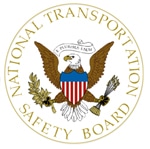 Washington, D.C. – As part of its ongoing investigation of the derailment of a crude oil unit train in Casselton, North Dakota, the National Transportation Safety Board produced a Train Braking Simulation Study, which it placed into the investigation docket. The study was prompted by recent North American crude oil and ethanol train derailments that resulted in the release of large volumes of flammable liquids that endangered persons, property and the environment.
Washington, D.C. – As part of its ongoing investigation of the derailment of a crude oil unit train in Casselton, North Dakota, the National Transportation Safety Board produced a Train Braking Simulation Study, which it placed into the investigation docket. The study was prompted by recent North American crude oil and ethanol train derailments that resulted in the release of large volumes of flammable liquids that endangered persons, property and the environment.
The study shows that Electronically Controlled Pneumatic (ECP) brake systems out-performed distributed power configurations, which in turn out-performed conventional brake systems. The study provides detailed description and analysis of each rail braking system and the stopping distances they achieved under various circumstances.
“Over the last decade, the NTSB has investigated a number of catastrophic flammable liquid unit train derailments. Our recommendations have called for improved technologies that can reduce or minimize the risk of derailments. Improved braking capabilities are but one part of the equation in making rail transportation safer,” said NTSB Chairman Christopher A. Hart.
The NTSB considered emergency and full service brake applications on uniform grade, tangent track with clean, dry rails. The study also evaluated the effect of different net braking ratios, which measure the amount of force applied by the brake shoes against the wheels. While ECP brake systems performed best, increasing the net braking ratio for any brake system substantially improved its stopping performance.
The NTSB’s investigation of the Casselton, ND accident is ongoing. Analysis of the accident, along with a determination of probable cause, will come later when the investigation is completed.
To read the study, click on the following link: http://go.usa.gov/3Gz6P.
Related News
- New CSX conductor improvises to save a life
- SMART News: Protecting Railroad Retirees’ Future
- More Than a Story: SMART-TD’s Women’s History Month Highlights Legacies in the Making
- Tentative Agreement Reached in Boston
- Assembly, No. 1672
- Historic short-line agreement proves workers are stronger with SMART-TD at their side
- SMART-TD’s Public Comment Opposing CSX’s “Zero-to-Zero” Push
- Like Mother, Like Daughter: New Jersey Transit is All in the Family for Rashonda Brown & Shakyia Ward
- DOGE to close seven RRB Regional Offices
- SB 25-162